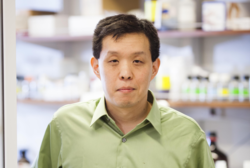Call Now Open
2026 Oxford-Harrington Rare Disease Scholar Award

Infectious Disease, Rare / Orphan
New and Selective Inhibitors of Tuberculosis
2020 Harrington Scholar-Innovator
Because tuberculosis (TB) cases typically number under 10,000 annually in the U.S., most Americans are unaware that nearly a quarter of all people on earth are infected with Mycobacterium tuberculosis, the microbe that causes TB. Before COVID, TB was the leading infectious disease killer in the world, claiming 1.5 million lives each year.
A microbe as old as humankind, it has not only figured out our immune system, but has learned how to adapt to available therapies. “Treating and eradicating TB is very challenging, and when we don't do it right, it becomes smarter and more resistant,” Dr. Rhee says. “Further, within a person's body it exists in multiple states, only some of which are vulnerable to antibiotics.”
Because of the scale and transmissibility of TB, it is both a cause and consequence of poverty. If it doesn't kill a person, it renders them unable to work — which leads to homelessness, food insecurity, and crowding that actually promotes conditions that foster spread of the disease.
At a conference in 2018, hearing a colleague speak about work he was doing on malaria, it struck Dr. Rhee that the same targets of the malaria approach were present in TB. “The idea is to lead the parasite to think that the compound we use is a nutrient,” Dr. Rhee says. “But in fact, it is poisonous to the parasite.”
Working off of the malaria therapy model, Dr. Rhee's team feels they have developed a formula that has strong pharmacological potential to progress into a lead compound. Harrington Discovery Institute is helping to ensure this project's biologic studies are optimized for drug development potential.
"Harrington has ensured that our studies of biology haven't become disassociated from the practical process of drug development itself."
Source: Article from 2020-2021 Annual Publication